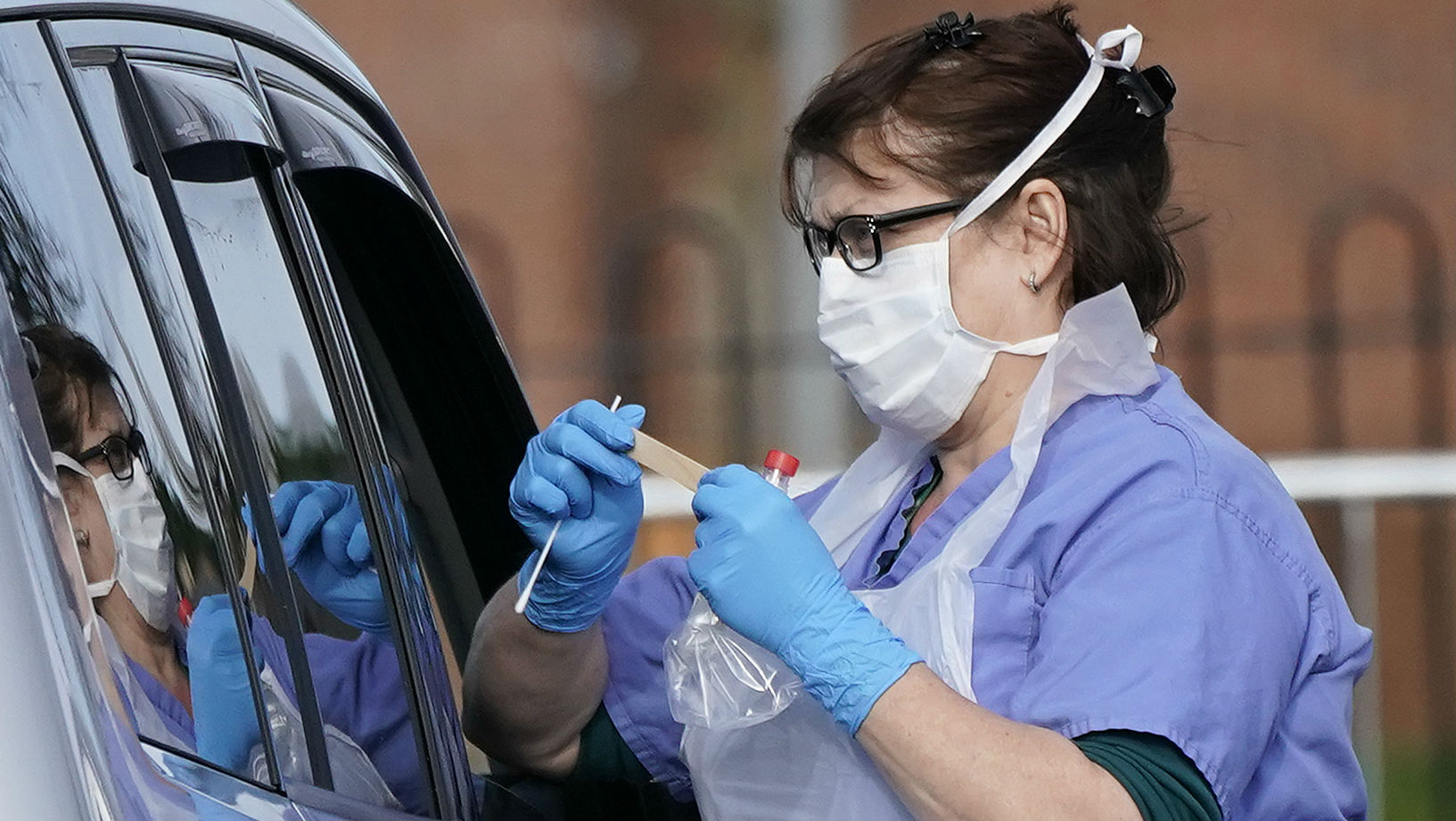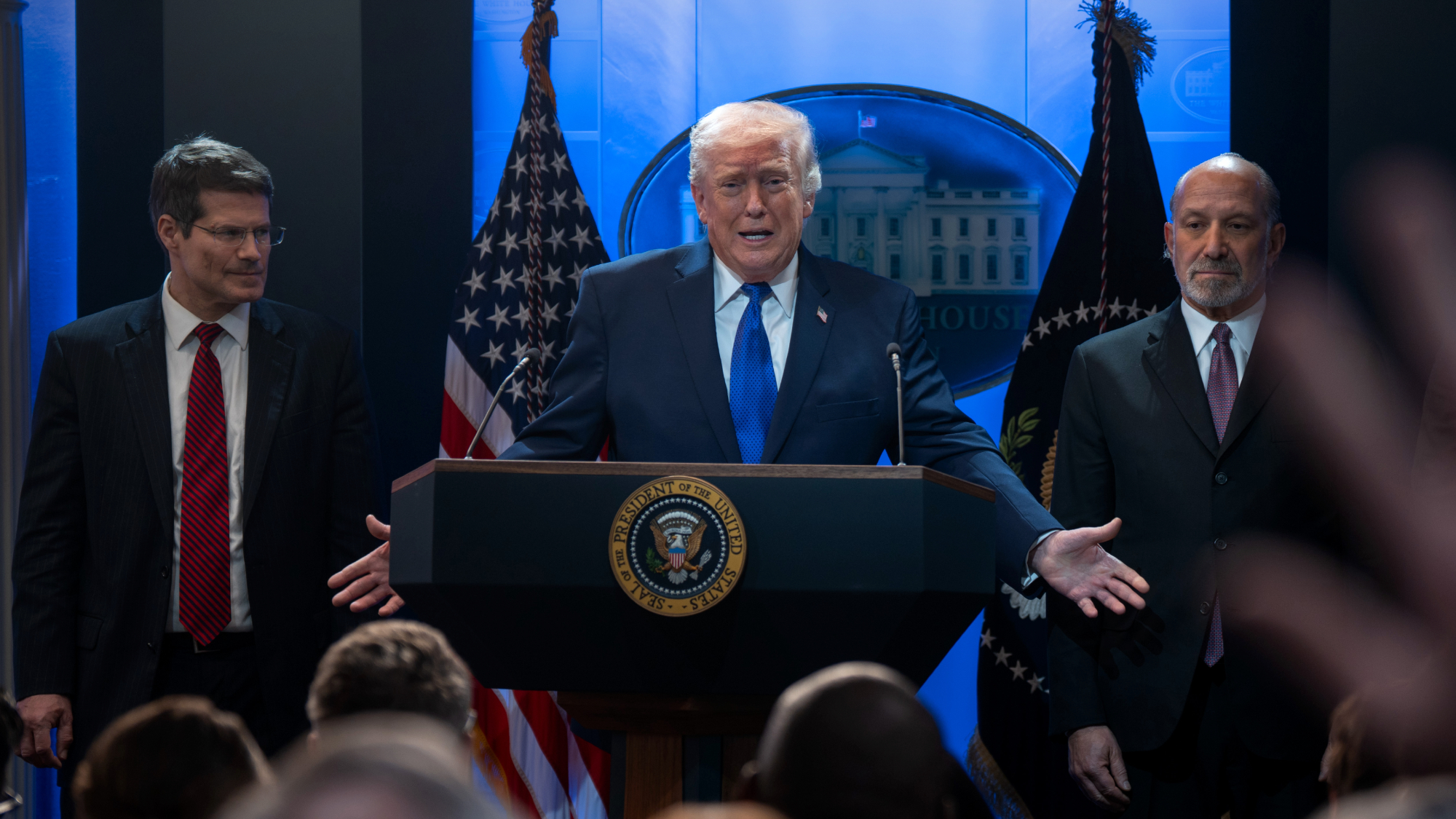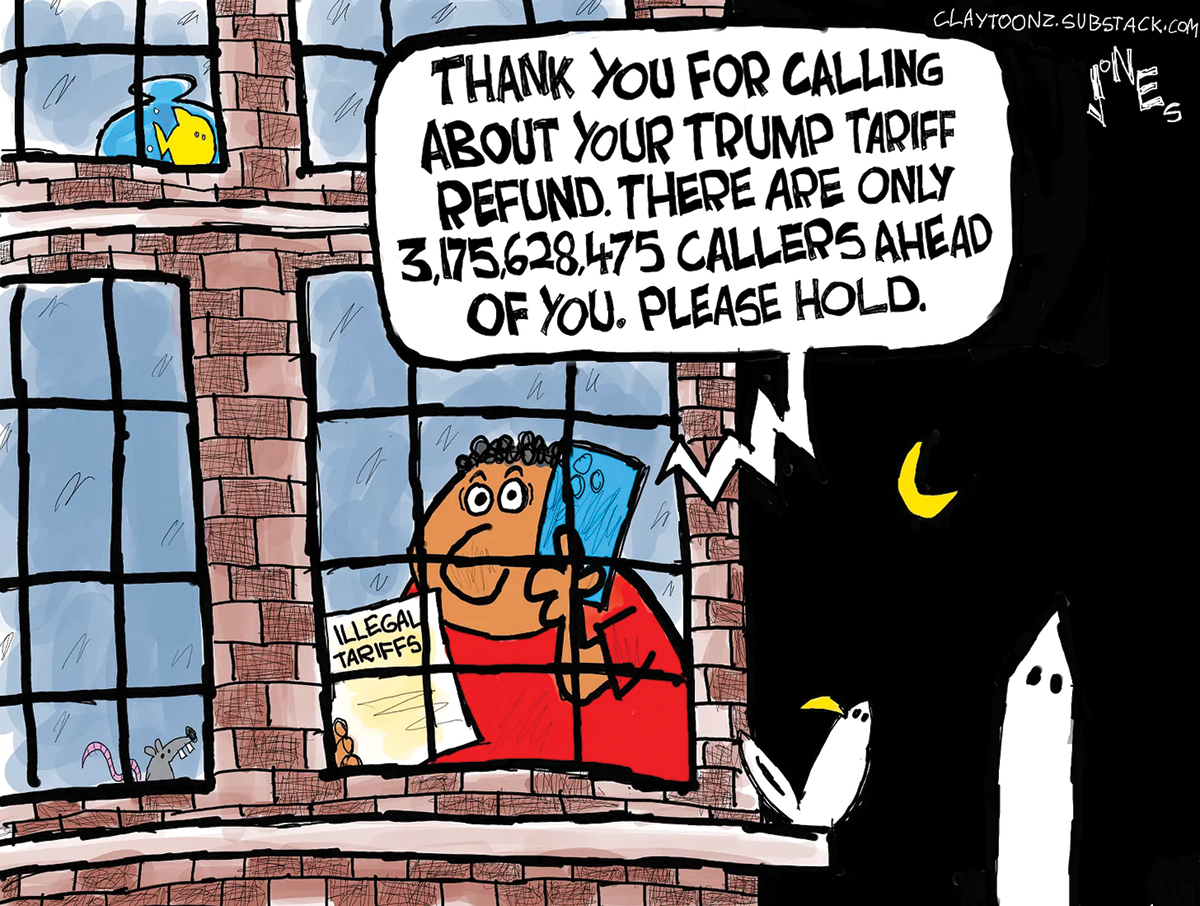Immunity tests: how do they work and when will they be ready?
New ‘simple’ antibody tests are seen as vital to understanding spread of Covid-19

A free daily email with the biggest news stories of the day – and the best features from TheWeek.com
You are now subscribed
Your newsletter sign-up was successful
Millions of tests that can detect whether a person has ever been infected with coronavirus will be available “within weeks”, according to The Times.
Robert Jenrick, the housing and communities secretary, said: “It will be a very simple one to use and it will be similar to taking a pregnancy test.”
Jenrick’s comments came as the government announced a £20m investment to study and better understand the spread of Covid-19.
The Week
Escape your echo chamber. Get the facts behind the news, plus analysis from multiple perspectives.

Sign up for The Week's Free Newsletters
From our morning news briefing to a weekly Good News Newsletter, get the best of The Week delivered directly to your inbox.
From our morning news briefing to a weekly Good News Newsletter, get the best of The Week delivered directly to your inbox.
Last week, the Prime Minister said that a “game-changing” test that can identify people who have been infected and consequently now have immunity was close to being developed.
How does the test work?
According to The Sun, the new test “goes further than the current method which only diagnoses those who are currently infected with the disease”.
The existing test “detects the virus’ genetic material in oral or nasal swabs”, says Wired. This means that it is highly effective, but “only returns a positive result when the virus is still present in the body”.
A free daily email with the biggest news stories of the day – and the best features from TheWeek.com
The magazine adds that the new test uses “serological testing”, meaning it will tell doctors if a person crossed paths with the coronavirus weeks or even months ago – sometimes without knowing.
This, Wired reports, will mean we can start to collect figures “modelling the spread of Covid-19”, so the government can “make accurate public health decisions”.
Lack of testing is said to be hampering efforts to free up beds for coronavirus patients, with some hospitals reporting that care homes are refusing to accept discharged patients unless they have been tested for the virus, according to Health Service Journal.
Commenting on the new test, Boris Johnson said: “The great thing about having a test to see whether you’ve had it, is suddenly a green light goes on above your head and you can go back to work safe and confident in the knowledge that you are most unlikely to get it again.”
When will the new tests arrive?
Wired reports that dozens of prospective serological test kits for Covid-19 have been developed all around the globe since the start of February.
Details on the latest test, the magazine says, from Icahn School of Medicine in New York City, were published just two days ago.
In Singapore and South Korea, serological tests have already been used on a large scale in national surveillance programmes that are likely to give scientists the first population data on just how widespread Covid-19 has been within a particular nation.
Speaking at the daily Downing Street press conference last Thursday, Patrick Vallance, the government’s chief scientific adviser, said Public Health England’s work on the antibody test is “progressing very fast”, said ITV.
Following the Prime Minister’s promise last week to ramp up testing in hospitals to 25,000 a day, Jenrick told the BBC that the government had ordered “millions” of the serological testing kits, adding that they will be available “in the coming weeks”.
-
 Mexico kills drug lord El Mencho, sparking chaos
Mexico kills drug lord El Mencho, sparking chaosSpeed Read Cartel members responded with a wave of retaliatory violence across the country
-
 Trump’s tariff loss at Supreme Court roils trade
Trump’s tariff loss at Supreme Court roils tradeSpeed Read The court ruled that President Donald Trump’s most sweeping tariffs were unlawful
-
 Political cartoons for February 23
Political cartoons for February 23Cartoons Monday’s political cartoons include tariff refunds, Epstein Island visits, and more
-
 How corrupt is the UK?
How corrupt is the UK?The Explainer Decline in standards ‘risks becoming a defining feature of our political culture’ as Britain falls to lowest ever score on global index
-
 The high street: Britain’s next political battleground?
The high street: Britain’s next political battleground?In the Spotlight Mass closure of shops and influx of organised crime are fuelling voter anger, and offer an opening for Reform UK
-
 Is a Reform-Tory pact becoming more likely?
Is a Reform-Tory pact becoming more likely?Today’s Big Question Nigel Farage’s party is ahead in the polls but still falls well short of a Commons majority, while Conservatives are still losing MPs to Reform
-
 Taking the low road: why the SNP is still standing strong
Taking the low road: why the SNP is still standing strongTalking Point Party is on track for a fifth consecutive victory in May’s Holyrood election, despite controversies and plummeting support
-
 What difference will the 'historic' UK-Germany treaty make?
What difference will the 'historic' UK-Germany treaty make?Today's Big Question Europe's two biggest economies sign first treaty since WWII, underscoring 'triangle alliance' with France amid growing Russian threat and US distance
-
 Is the G7 still relevant?
Is the G7 still relevant?Talking Point Donald Trump's early departure cast a shadow over this week's meeting of the world's major democracies
-
 Angela Rayner: Labour's next leader?
Angela Rayner: Labour's next leader?Today's Big Question A leaked memo has sparked speculation that the deputy PM is positioning herself as the left-of-centre alternative to Keir Starmer
-
 Is Starmer's plan to send migrants overseas Rwanda 2.0?
Is Starmer's plan to send migrants overseas Rwanda 2.0?Today's Big Question Failed asylum seekers could be removed to Balkan nations under new government plans